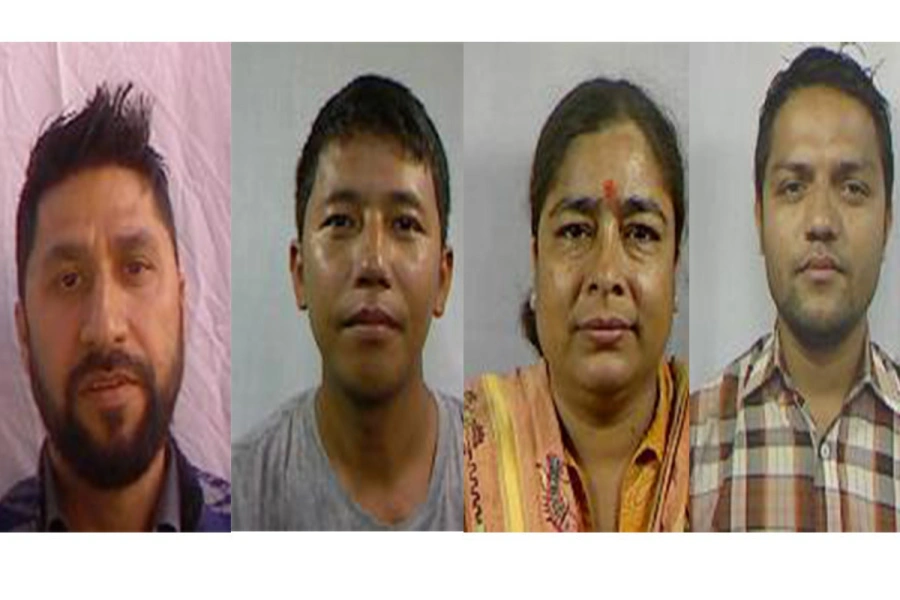KATHMANDU, April 29: Despite top leaders' claim that the planned unification between the CPN-UML and the CPN (Maoist Center) had reached the point of no return, the two parties face an uphill task of sharing power along the party line and managing top portfolios.
The two parties, which signed a seven-point merger deal on February 19, have achieved considerable success in developing uniform views on the political and ideological front, which was earlier highlighted as one of the major obstacles to the unification.
The proposed new party- the Communist Party of Nepal - would adhere to Marxist Leninist philosophy, while upholding the principle of "nationalism, democracy and social justice in order to create the basis of socialism”.
Statute amendment remains uphill task

In a draft statute, a taskforce comprising leaders of the two parties, has proposed taking the final call on Maoist's guiding principle of Maoism and People's Democracy for 21st century and UML's guiding principle of People's Multiparty Democracy through the first general convention.
But the two parties still appear far from a breakthrough because of the differences on the organizational front. One key difference is over division of power along the party structure. The Maoist Center (MC), the third largest party in parliament, has insisted that both parties should get equal representation in all executive committees including the central committee, the party's main committee. UML, on the other hand, has offered to resolve power sharing based on 70/30 ratio which the party claim would be in line with the people's mandate, given the number of seats won by the two parties in the parliamentary and provincial elections. The same ratio was followed while distributing the ministerial portfolios.
Some leaders have hinted that UML could offer up to 40 percent stake to Maoist Center in the new party. The two parties had forged an electoral alliance distributing tickets on the basis of 60/40 ratio.
Among the contentions, the biggest dispute is over the sharing of power between the chairmen of the two parties in the unified party. Dahal, who had earlier agreed to share party helm with Oli, is now saying that both leaders should have equal power in the new party and the government for a dignified merger. During a meeting with Oli on Friday, Dahal had said that he should have the helm of the party until the former remains in charge of the government. Equal division of power between the two leaders, Maoist leaders say, is one of the preconditions of the merger.
Maoist leaders said that Dahal raised the issue of "one leader, one post" fearing that he would be cornered in the unified party. The existing terms of merger put UML in a better position to determine the next party chairman.
In the last few weeks, Oli and Dahal have spent more than 15 hours in one-on-one meetings trying to resolve the differences, after multiple efforts for consensus at various levels ended in failure. But the meetings have failed to generate tangible outcomes.
Leaders with knowledge on the matter said that Oli has insisted on the need for upholding the seven point agreement between the two parties. The seven-point agreement states that the unified party would follow joint leadership until the first general convention elects a new leader.
Even if Oli agrees to Dahal's demand, there is no guarantee that the UML rank and file would uphold the agreement, especially when several senior UML leaders including Madhav Kumar Nepal, Ishwor Pokharel, Bamdev Gautam are eyeing the party leadership. Any agreement regarding the merger needs to be endorsed through the central committee.
"Oil has the authority to rotate the premiership with Dahal. But he cannot give any assurance on the post of chairman of the new party to be formed," said a UML leader.







































